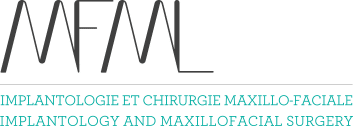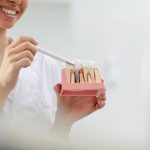Certain precautions should be taken after oral surgery to promote healing. This is especially the case for the consumption of alcohol or cigarettes, which are to be avoided despite lifestyle habits.
While it may not be life-threatening, it is still strongly recommended that you do not smoke or drink alcohol within 48 to 72 hours of surgery. Not only is the use of these products likely to significantly affect your recovery, but it can also interact with the medications you will be prescribed, which can be very dangerous.
Smoking after oral surgery, a roadblock to your recovery
As with all surgeries, oral procedures such as dental extractions require a recovery period. During this period, the tissues affected by the surgery need as much oxygen and nutrients as possible, which are transported through the blood vessels in your mouth.
When you smoke, these blood vessels contract, which significantly interferes with the healing process. Damaged tissues do not get the nutrients they need to heal properly. This is why smoking is one of the things to avoid after dental surgery.
With dental extractions, you may also suffer from alveolitis, an inflammation of the tissues around the extraction. Alveolitis occurs when the toxic products in tobacco smoke destroy the blood clot formed at the extraction site, which is essential for healing. In addition to experiencing severe pain, you will delay your recovery.
Drinking alcohol after oral surgery, a risk of dangerous interaction
It should first be noted that the risks associated with tobacco consumption also apply to alcohol. If you drink within 48 hours of the operation, you may delay your recovery or develop alveolitis. Since alcohol thins the blood, your wound may not clot enough to ensure a quick and complete recovery.
It is also very important to remember that alcohol interacts with the medications you will be prescribed, including antibiotics and analgesics. These interactions can be toxic and very dangerous. In some cases, alcohol consumption under the influence of analgesics can even lead to respiratory depression; this is a risk that should not be taken lightly.
How to promote a good recovery after oral surgery
If you want to ensure a short recovery period and a full recovery, we recommend that you follow these few tips. First, it is important to get plenty of rest. This will reduce bleeding, which can help the wound heal more quickly.
Adopt a soft diet for a few days after surgery. If you have had orthognathic surgery, you should choose liquid meal replacements that provide adequate nutrient intake despite the limited variety of foods available to you. This restriction in diet is essential to promote good bone healing. The duration of the liquid diet will vary according to each case.
Clinique MFML, oral and maxillofacial surgery specialists
If you have any further questions about oral and maxillofacial surgery, you are welcome to contact us. At Clinique MFML, we have your peace of mind at heart. We will be happy to answer your questions and provide you with our expertise.




